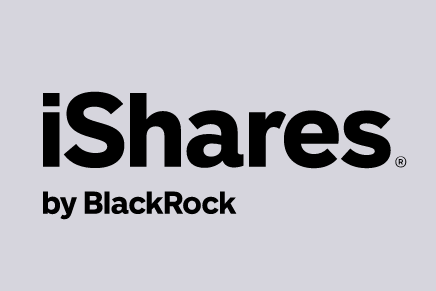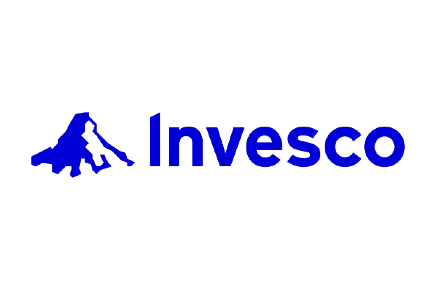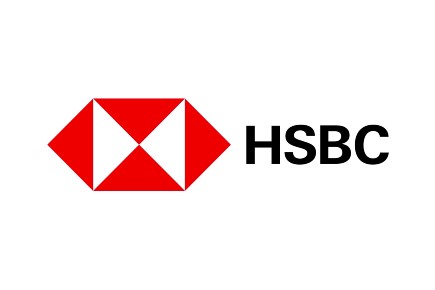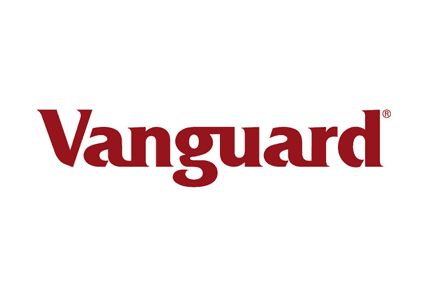FTSE 100 exchange-traded funds (ETFs) are one of the most popular methods for investing in the top 100 companies in the UK. This is thanks to their simple, low-cost way of accessing the index.
In this guide, I lay out five of the best FTSE 100 ETFs to buy in July, the benefits of investing in them, and how to buy units.
My best rated FTSE 100 ETFs to buy in July 2024
- iShares Core FTSE 100 UCITS ETF GBP Dist. (LON:ISF) – Lowest-cost and most accessible option
- Invesco FTSE 100 UCITS ETF GBP Acc. (LON:S100) – Best major performer
- HSBC FTSE 100 UCITS ETF (LON:HUKX) – Best tracker
- Vanguard FTSE 100 UCITS ETF GBP Acc. (LON:VUKG) – Renowned brand
- Xtrackers FTSE 100 UCITS ETF (£XDUK) – (LON:XDUK) – Best returns

[stock_market_widget type=”card” template=”basic2″ assets=”ISF.L” display_currency_symbol=”true” api=”yf”]
Why buy this ETF?
- Extremely economical annual management fee of 0.07%.
- Most tradeable due to lowest market price amongst FTSE 100 ETFs available.
- Massive fund size of c.£11.2bn makes it very liquid.

[stock_market_widget type=”card” template=”basic2″ assets=”S100.L” display_currency_symbol=”true” api=”yf”]
Why buy this ETF?
- Best-performing major FTSE 100 ETF in 2023.
- Biggest FTSE 100 ETF asset size of c.£16bn.
- Decently low-cost annual management fee of 0.09%.

[stock_market_widget type=”card” template=”basic2″ assets=”HUKX.L” display_currency_symbol=”true” api=”yf”]
Why buy this ETF?
- Least tracking error on the FTSE 100 due to its smaller fund size of c.£479m.
- Solid dividend yield of c.4%.
- Competitive annual management fee of 0.07%.

[stock_market_widget type=”card” template=”basic2″ assets=”VUKG.L” display_currency_symbol=”true” api=”yf”]
Why buy this ETF?
- Huge fund size of c. £4.8bn with a strong and reliable brand managing it.
- Relatively inexpensive annual management fee of 0.09%.
- Dividends are reinvested back into the fund, making it a good option for passive investors to compound gains.
[stock_market_widget type=”card” template=”basic2″ assets=”XDUK.L” display_currency_symbol=”true” api=”yf”]
Why buy this ETF?
- Best-performing FTSE 100 ETF over the past five years.
- Based in Luxembourg, where tax rates are more favourable for higher returns.
- Relatively decent annual management fee of 0.09% for better performance.
Please note: The value of your investments (and any income from them) can go down as well as up and you may not get back the full amount you invested. Past performance is not a reliable indicator of future performance. Investments should be considered over the longer term and should fit in with your overall attitude to risk and financial circumstances.
CFDs and spread bets are complex instruments and more than half of retail investor accounts lose money when spread betting and trading CFDs. Please make sure that you know these risks before you start trading and that you’re aware there’s a high chance of losing money rapidly on your investment.
What are FTSE 100 ETFs?
A FTSE ETF is an exchange-traded fund (ETF) that follows the performance of the FTSE 100 index. The FTSE 100 is an index compiled of the top 100 stocks on the London Stock Exchange with the highest market capitalisation (market cap).
Usually, exchange-traded funds work by investing in the underlying holdings of a specific stock market index. So, an ETF that tracks the FTSE 100 will aim to reflect the performance of the top 100 firms by market cap in the UK market. Current constituents of the FTSE 100 include companies such as AstraZeneca, BP, Shell, Diageo, and Unilever.
Aside from the FTSE 100, there are also ETFs tracking many different indices around the world. For example, the SPDR FTSE UK All Share UCITS ETF uses the FTSE All-Share as its underlying index.
What are the benefits of investing in FTSE 100 ETFs?
There are a number of advantages to investing in FTSE 100 ETFs. I have outlined a few of these below:
Long-term capital growth
ETFs are often best suited as a long-term investment, because the units involved in the fund tend to increase in value over extended periods, typically at least five years.
The FTSE 100 index has averaged an annualised return of c.8% since its inception in 1984. Therefore, investing in an ETF that exclusively tracks the index has the potential to provide similar returns.
Of course, in some years returns have been negative throughout this period. Additionally, past performance is not an indicator of future performance, and companies on the index may not always grow as they have done previously. But overall, investing in an index fund like the FTSE 100 can lead to long-term growth.
Diversification
Buying an ETF gives you instant exposure to the index it follows. This means greater diversification across sectors and industries in the UK than you might be able to achieve when buying individual stocks and shares.
Low-cost investment
It is generally cheaper to invest in ETFs than mutual funds. This is because mutual funds, which are more likely to be actively managed funds, require investors to pay heftier management fees to fund managers.
There are annual charges for ETFs too, but these are typically smaller than actively managed funds. For example, you can invest in some ETFs that have annual charges of just 0.07-0.09%, such as the Vanguard FTSE 100 UCITS ETF.
What to consider before buying a FTSE 100 ETF
As with any investment, there are also downsides to investing in FTSE 100 ETFs, which are listed below:
Minimal technology exposure
The FTSE 100 is a slow-moving index, and is considered one of the most stable indices. One of the key reasons for this is because the FTSE 100 has minimal technology exposure, as the UK is not as big an exporter of technology as other nations such as the US. Although this limits volatility as tech stocks tend to be volatile, it also means investors may not get direct exposure to top-class technology firms which tend to generate much bigger returns over the long term.
Tracking errors
An ETF manager will try to keep their fund’s investment performance aligned with the index it tracks, but that may be easier said than done. That’s because tracking errors, while fairly uncommon, can occur with any index-tracking fund, and FTSE 100 ETFs are no exception.
An ETF can stray from its intended benchmarks for many reasons. If the fund manager needs to swap out assets in the fund or make other changes, the ETF may not reflect the holdings of the index. As a result, the performance of the ETF may deviate from the performance of the index.
How can I invest in FTSE 100 ETFs?
Follow these five steps below to easily start investing in FTSE 100 ETFs today:
- Open a trading account – Firstly, you will need to open an account with one of the many brokers or online trading platforms which offer ETFs.
- Find and compare FTSE 100 ETFs – Next, decide what type of ETFs to buy. You need to ensure you compare key features, such as annual dividend yields, expense ratios, and track records. All FTSE 100 ETFs will track the FTSE 100 index, but there are also ETFs for other benchmark indices for you to consider.
- Place the trade – You will need to access the trading section of your brokerage website or platform and search for the name or ticker of the ETF you want to buy.
- Choose the number of units you would like to buy – Once you have found your chosen ETF, input the number of units you would like to purchase.
- Confirm your purchase and keep an eye on your investment – Congratulations, you’ve officially invested in a FTSE 100 ETF! Remember to keep an eye on your investment. You can always buy or sell units if they are not performing as you would hope.
Other ways to get exposure to the FTSE 100
Besides investing in ETFs, you can also gain exposure to the FTSE 100 in other ways. Two ways you could do this are by buying individual shares listed on the index, or trade through derivatives.
Buying individual shares
Rather than investing in all the constituents of the FTSE 100 at once, you could instead buy individual stocks and shares. This allows you to choose how much exposure you want to each company, rather than have a fund manager decide for you. You’ll also directly benefit from any rises in value, rather than needing ETF units to increase in value for you to generate a return.
Furthermore, any dividend payments the companies make will be paid directly to you, rather than to an ETF provider to distribute or reinvest. Nonetheless, it’s important to note that the constituents in the FTSE 100 can change regularly. So, to keep up to date with the changes in the index, you’ll need to keep an eye on which stocks have moved in and out if you want to keep your exposure to the index the same.
Another key point to note is that there may be higher trading or commission fees associated with buying individual shares. ETFs are typically a cheaper option for this exact reason.
Trading derivatives
Another option you have is to trade derivatives, either on individual FTSE 100 shares or on FTSE 100 ETFs. Two ways you could do this are through spread betting or contracts for difference (CFDs).
When you spread bet, you’re speculating on the future price movement of assets. So for example, if you think a FTSE 100 ETF is going to rise in value, you could bet on how far you think this will happen. Your returns or losses are then linked to whether your bet is correct.
Meanwhile, CFDs work by paying you the difference in the value of an asset from when you open the position to when you close the contract. As with spread bets, returns or losses are then determined by whether the asset moves in the direction you thought it would.
Derivatives can be useful as they allow you to take both long and short positions, meaning you can speculate on whether an asset will increase or decrease in value. These are leveraged instruments, meaning you can place larger trades while only having to put the margin upfront. Bear in mind that while this means gains will be magnified with leverage, so will any losses you incur.
It’s crucial to note that the majority of retail investor accounts lose money when trading derivatives such as CFDs and spread bets, and these typically range between 50-80%. As such, make sure you fully understand the high risks associated with these methods of investing and trading before putting your money in the market.
Best FTSE 100 ETFs FAQs
What is the best FTSE 100 ETF?
The iShares Core FTSE 100 UCITS ETF (LON:ISF) is one of the most popular FTSE 100 ETFs on the market currently. However, the Vanguard FTSE 100 UCITS ETF (LON:VUKE) is also a popular option thanks to its low annual charges and strong brand.
Is the iShares FTSE 100 ETF a good investment?
- Learn how to invest in the FTSE100
- Have you considered transferring your pension?
- Find the best trading platforms
